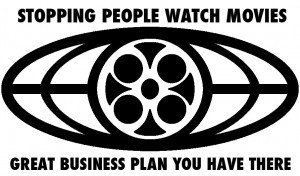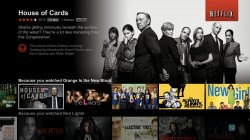Welcome to another edition of the WNR, where you’ll get the latest news stories that I bothered to read (or write about) during the past week. Think of me as a filter that weeds out all the boring, useless and sometimes plainly untrue stuff, leaving you the best of the best, cream of the crop, in terms of news every week.
Read on to find out whether I’m talking out of my ass or not.
![]()
Just a brief follow-up to the story that I already covered in the last WNR (but have only written the full article for this week) in regards to the EU now ruling embedding is not a copyright infringement. The actual case from which this ruling derives involves a video produced by a water filtering company that was uploaded to YouTube, and then embedded by agents working for a competitor on their personal site (I’m assuming it was also accompanied by some unsavoury comments, hence the legal complaint). The water filtering company claimed copyright infringement, but the Court, in my opinion, correctly ruled that as the video was originally uploaded to YouTube and allowed to be embedded by the rights holder, nothing untoward has actually occurred. You can’t really have it both ways – to want users to embed and share your video, but not your competitors when it comes to comment and criticism.
A key part of the ruling has to do with what is considered a new communication. The Court found that because the video was uploaded to an open and publicly accessible website like YouTube, embedding it to one or a million other pages does not actually communicate the (unmodified) video to a new audience, hence not a new communication. Looking it from the opposite angle, had the original video been uploaded to a private site and it was then embedded onto a public page, even without modification, this would be considered a new communication. The Court also based its ruling on precedent, in which they likened embedding to hyperlinking, which also does not count as a new communication.
All very sensible decisions, but you do have to question just how unbalanced and vague existing copyright law has to be for such a simple and logical issue to require the attention of the Court of Justice of the European Union.
——
It’s that time of the year again, and the MPAA has updated their submission to the USTR outlining the most “notorious” piracy markets. Nothing of real note in their submission really, with the usual suspects all being mentioned – Kickass.to, The Pirate Bay, Torrentz.eu, Uploaded.net – and the usual physical markets, like China, Russia, Thailand. One slightly interesting addition was the Greater Toronto Area … those sneaky Canadians, you can never be too careful. Just what the MPAA wants the government to do about these places, I really don’t know, and don’t care.
Meanwhile in Australia, one of our biggest ISPs have taken a stand against “copyright trolls” seeking to sue users for downloading copies of ‘Dallas Buyers Club’. The company seeking to sue, a ‘Dallas Buyers Club LLC’ which appears to have been created specifically to process claims wants the ISP, iiNet, to hand over subscriber details. iiNet is willing to cooperate, but only if the request is backed by a court order, which at the moment it is not. With iiNet’s past resilience to Hollywood backed legal pressure, this latest development will not enamour the ISP to rights-holders here already targeting iiNet as public enemy number one in their ongoing piracy crusade. I doubt iiNet cares though, but their customers, most of whom value their piracy, does.
![]()
If you can’t join them, beat them. That’s what Rupert Murdoch wants his and other competing media companies to do – to join forces and take on Netflix (and Amazon). Believing that the streaming market is now being dominated by these two big tech companies, which is not good for the industry (and maybe not good for consumers either, it has to be said), Murdoch wants media companies to avoid making the same mistakes that the music industry made, which allowed the likes of Apple to sneak in and now dominate over the entire industry.
It’s rare that I agree with Rupert Murdoch, but he is right in that this market space, or any space for that matter, needs competition to remain healthy, and for it to be beneficial to consumers. But I have almost no confidence that the old guard can come up with anything remotely as good as Netflix (or Amazon), simply because they care more about protecting their own interests than about what the consumer wants. Things like DRM, lack of inter-operability, and consumer unfriendly processes – all borne out of their obsession with control (for all of the above, see the UltraViolet platform) – has been and will be their undoing, until they figure out that serving customers should be their number one priority. The EFF, responding to Murdoch’s comments, made pretty much the same argument.
So I do hope the movie studios don’t make the same mistakes as the music industry, or the book industry, and allow a few key players from the tech industry to have way too much power to dictate things like pricing and availability (see Amazon vs studios, vs book publishers). But if the studios’ ultimate goal is to launch a product that allows them to create their own monopoly, then that’s not something we need and we’re much better off to leaving it to the tech companies, who are at least innovative.
![]()
Sony’s PS4 success is translating into good financial results for the company, with its gaming division reporting a 83.2 percent increase in second quarter year-on-year sales. The company says the financial results are completely driven by sales of PS4 consoles, network sales and games. PS3 sales continue to fall though. While operating income is still fairly low, $200 million out of sales of $2.77 billion, it is still the one bright spark in Sony’s otherwise fairly average set of results (operating loss of $766.60 million).
On the other side of the ring, Microsoft has been forced to offer an additional $50 discount to its flagging Xbox One console until the end of the holiday period. The most important sales period for gaming companies, Microsoft is hoping that the $50 discount, which brings the Xbox One’s price to be below that of the PS4, will help boost the console and regain some lost market share. The company’s previous console, the Xbox 360, led successive holiday sales periods and easily outsold Sony’s previous console, the PS3.
——
So that was the best and most interesting of the week. Didn’t find anything particularly interesting? Don’t blame me, I’m just the messenger (albeit a fairly lazy one). See you next week (hopefully).




